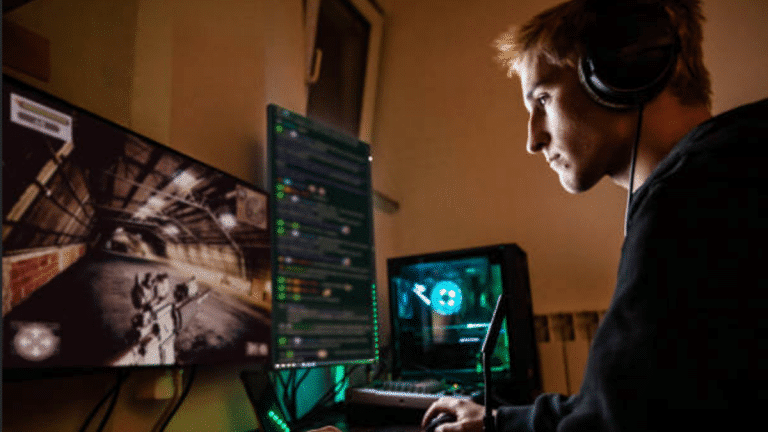Racing games have long been a staple of gaming culture, offering players the thrill of speed, competition, and customization. While developers provide a base experience, the involvement of the gaming community through mods and user-generated content (UGC) has significantly enhanced the longevity and appeal of these titles. In this article, we delve into the world of community-driven content in racing games, exploring the impact of mods and UGC on gameplay, creativity, and community engagement.
Contents
The Evolution of Mods in Racing Games
Mods, short for modifications, have been an integral part of gaming since the early days of PC gaming. Originally developed by enthusiasts who sought to customize their gaming experience, mods have evolved into sophisticated additions that can alter almost every aspect of a game. In racing games, mods range from simple cosmetic changes to complex gameplay overhauls.
- Enhancing Visuals: One of the most common types of mods in racing games is those aimed at improving graphics. These mods can introduce high-resolution textures, realistic lighting effects, and enhanced environmental details, elevating the visual fidelity of the game.
- Adding New Vehicles: Modders often create and introduce new vehicles into racing games, expanding the roster beyond what the developers initially offered. Whether it’s classic cars, futuristic prototypes, or iconic vehicles from pop culture, these additions inject fresh excitement into the game.
- Customizing Tracks: Some mods focus on creating new tracks or modifying existing ones. Players can race on real-world circuits, fictional landscapes, or recreate famous locations from movies and TV shows. This diversity keeps the racing experience dynamic and unpredictable.
Empowering Creativity through User-Generated Content
User-generated content (UGC) takes community involvement to the next level by allowing players to contribute their creations directly to the game. Through dedicated tools and platforms, players can unleash their creativity and share their content with others, fostering a vibrant ecosystem of user-generated experiences.
- Track Editors: Many 128sports racing games come equipped with track editors that enable players to design and build their circuits from scratch. These editors provide a range of tools for terrain sculpting, object placement, and track layout customization, empowering players to create tracks that suit their preferences and challenge their friends.
- Vehicle Customization: UGC extends to vehicle customization, allowing players to personalize their cars with unique paint schemes, decals, and performance upgrades. From sleek racing liveries to whimsical designs, the possibilities are endless, enabling players to express their individuality on the racetrack.
- Community Challenges: Some racing games feature community-driven challenges where players can create and share their racing scenarios. Whether it’s time trials, checkpoint races, or stunt challenges, these community-created events add replay value and encourage friendly competition among players.
Fostering Community Engagement and Longevity
Incorporating mods and user-generated content significantly enriches the gameplay experience while cultivating a strong community spirit among players. Through opportunities for collaboration, creativity, and competition, racing games transcend the realm of solitary entertainment, morphing into vibrant ecosystems where aficionados unite to revel in their collective fervor for racing.
- Collaborative Projects: Modding communities often collaborate on ambitious projects that go beyond individual efforts. From comprehensive mod packs that overhaul the entire game to collaborative track-building initiatives, these projects showcase the collective talent and dedication of the community.
- Showcasing Talent: Mods and user-generated content serve as platforms for aspiring developers and designers to showcase their skills. By sharing their creations with the community, individuals can garner feedback, improve their craft, and even catch the attention of industry professionals scouting for talent.
- Extending Longevity: The availability of mods and user-generated content significantly extends the lifespan of racing games. Even after developers cease official support or release new instalments, the community can continue to sustain interest in older titles through a steady stream of fresh content and updates.
Challenges and Considerations
While mods and user-generated content enrich the 128sport racing game experience in numerous ways, they also present certain challenges and considerations for both players and developers.
- Compatibility and Stability: Mods can introduce compatibility issues and instability, especially when multiple mods are used simultaneously. Developers must strike a balance between fostering creativity and ensuring the stability and integrity of the game.
- Legal and Copyright Concerns: The creation and distribution of mods and user-generated content may raise legal and copyright concerns, particularly when it involves the use of copyrighted material without proper authorization. Developers must establish clear guidelines and frameworks to address these issues and protect intellectual property rights.
- Quality Control: Maintaining quality control over user-generated content can be challenging, as not all submissions may meet the same standards of polish and professionalism. Developers may need to implement moderation systems or community-driven review processes to uphold quality standards and prevent the proliferation of low-quality content.
Conclusion
Mods and user-generated content have become indispensable elements of the racing game experience, enriching gameplay, empowering creativity, and fostering community engagement. By embracing the contributions of the gaming community, developers can create dynamic and enduring racing experiences that continue to captivate players long after release. As technology advances and community-driven initiatives evolve, the future of racing games promises to be even more immersive, diverse, and community-driven.

